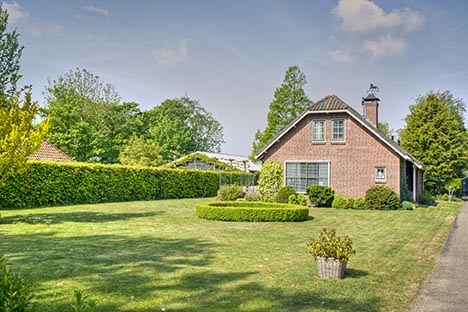Real estate agents and property managers in Colorado have a message for anyone planning on moving to the Rocky Mountain state in order to take advantage of legal marijuana: plan to pay more for housing costs.
Home prices and rents across Colorado have seen a dramatic rise in recent years, especially in metro areas such as Denver and Boulder. For those looking to smoke, grow or store marijuana in their home, the price can be even higher.
In light of the recent progressive movements Colorado has made towards legalization, an influx of people have begun moving into the state specifically for cannabis and its related branches. So many so, that property managers have begun charging significantly higher rents for the right to smoke or grow in a rental.
Grant Van Der Jagt, owner and president of Denver Property Management, says that property owners who lease housing must include stipulations stating whether pot smoking or cultivation is permissible in their leases. Owners who choose to allow marijuana use in their property can charge 25 percent higher rent thanks to an explosive demand for that specific allowance. Van Der Jagt estimates that between 30 and 40 percent of his potential tenants want the ability to use marijuana in the property they rent.
“It’s shocking how many rental applicants are proactively saying, ‘Yes I plan on using the property for that purpose,’” Van Der Jagt says. When asked whether property owners come to him looking to cash in with unrealistic demands for rents, Van Der Jagt says the opposite is true. “I have to tell them to ask for higher rent. They don’t realize how much they can get for their property.”
The premium on rental properties that allow marijuana use coupled with a population boom that makes Colorado one the nation's fastest growing states has escalated housing costs for everyone. The Denver Metro Area Apartment Vacancy and Rent Survey, which looks at housing costs and trends throughout metropolitan Denver, shows the average rent for the area is $1,265 per month as of the second quarter of 2015, about 30 percent higher than mid-2012 when the average rent was under $1,000 per month. Meanwhile, the vacancy rate dropped to 4.5 percent, according to the survey.
According to Colorado’s State Demography Office, in 2013, the year after Colorado voted to legalize marijuana, nearly 48,000 people moved to the state. This number increased over 20 percent from the previous year when about 40,000 people moved in, while only roughly 36,000 moved in 2011. The number rose even higher in 2014, when almost 51,000 people moved to Colorado.
Mike Eymer moved from North Carolina to Denver in 2010, planning to help some friends operate a medical marijuana dispensary. In the five years he has been there, he has seen rent grow significantly higher. When he arrived in Denver in 2010, he found a home to rent for $1,300, but has since moved to another part of town. Eymer explains that that same home he once occupied likely rents for $2,000 per month today. “Easily,” he adds. “Rent has gone ridiculously sky high.”
Today, Eymer operates Colorado Cannabis Tours, shuttling vacationers around town in limos and party buses to various dispensaries, grow facilities and glass-blowing demonstrations. Eymer says that people taking his tours routinely talk about plans or desires to move to town.
“On every tour, people ask me, ‘What’s the best neighborhood to move to?’ and ‘Where should I look in Denver?’”
From June 2013 to June 2014, Colorado’s population grew by 1.59 percent according to the U.S. Census Bureau. While at first, that number may sound small, it is actually more than double the national average of .75 percent during that same time, with only three states growing faster, according to the Census Bureau.
The extent to which the increase in housing costs may be creating financial hardships is unclear. Denver area housing advocates, and housing charities, were unable to provide data on the number of requests they have received for assistance.
With such a strong demand for housing, builders and property developers have responded with more and more housing projects, leading to a boom in construction. The number of building permits issued for the Denver area more than doubled from 2011 to 2012, averaging about 15,000 permits per year since 2012.
However, building projects take time to complete, and until the supply of housing catches up to demand, Denver property managers and landlords have a problem they are happy to contend with. “It’s like trying to drink from a fire hose,” says Renters Warehouse General Manager, Jon Ortner, who estimates that rents in Denver are increasing faster than every other city except San Francisco.
Ortner says that since entering the Denver market in 2012, the average number of applications submitted for each rental listed by his company has more than doubled from 4 to 10.
“It’s drastically different from when we started,” Ortner says. “It’s a good business problem to have.”
But not all landlords are eager to allow marijuana in their properties, says Greg Bacheller, co-owner of Real Property Management, which only deals with owners and leases that specifically disallow marijuana.
“If someone is smoking pot on their balcony and it floats up and gets the people above them high, that’s a problem,” he says. “If you look at it from a property preservation standpoint, smoke gets in the walls, it gets in the carpet. Our only landlords who allow cigarette smoking are smokers themselves.”
Costs are also high for those considering buying their own place. The average home sale price in Colorado is over $311,000, and in the Denver area home sales average over $330,000, according to real estate research firm RealtyTrac.com, while the average home sale price across the U.S. is under $286,000.
And in the case of condos and townhouses, some homeowners’ associations, like some landlords, may not allow marijuana, says Bob Costello, a real estate broker who calls himself Denver’s Expert 420 Realty Broker.
Costello mainly deals in warehouses used for grow facilities, and industrial kitchens used in the production of edibles, both of which, if they meet all legal requirements for marijuana business use, will command prices 40 percent higher than spaces that cannot be used in the marijuana business, he says. But because he’s attracted so much attention from the media, he gets a lot of calls from people inquiring about buying homes.
“It’s not a good time to move here and buy a house,” Costello says. “People were migrating here in the 80s for the oil boom and now they’re migrating here for the green boom.”











